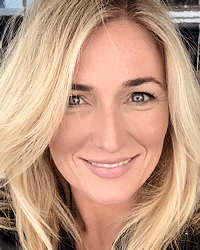- Thank You

Miss Julie Sweet
Psychotherapist, Counsellor
Seaway Counselling and Psychotherapy
Bondi Junction, Sydney NSW 2022
In Person + Telehealth
Philosophy & Vision
Julie has been practising as a clinical Counsellor and Psychotherapist for over 8 years. She has a depth of practical experience in working with clients in both short and long-terms contexts. She works from a person centred and client focused framework.
Background
Julie's most notable career experience was as Psychotherapist at The Royal Commission into Institutional Responses to Child Sexual Abuse, where she counselled hundreds of survivors of child sexual abuse.
Julie finds this work of witnessing people's journeys of discovery and fulfilment a humbling and purposeful occupation.
Services
Julie specialises in working with individuals who have experienced trauma. Single incident trauma, compound and complex trauma, adult survivors of child sexual abuse and domestic and family violence. Julie also works with people relating to family of origin and family systems, along with mental health issues.
Areas of Special Interest
Accreditations
- Bachelor of Counselling and Human Change - 2012 - (Psychotherapy) Jansen Newman Institute
- PACFA Registration Number: 26663.
Modalities
Attachment Theory - Emotionally Focused Therapy - Existential - Inner Child - Internal Family Systems - Marriage and Family - Mindfulness - Motivational Interviewing - Narrative Therapy - Person Centred - Psychoanalytic - Self Psychology - Trauma-Informed
Therapy Approach
Julie's approach is one of empowering the individual to achieve greater independence, improved mental health and positive well-being. Her areas of focus have been centred on how historic traumatic events impact people in their present-day relationships and sense of self-worth.
Professional Associations
- Psychotherapy and Counselling Federation of Australia
Practice Locations
Suite 601, Level 6, 9-13 Bronte Road
Bondi Junction NSW 2022
Appointments
Monday - Saturday.
Fees & Insurance
Cost per Session: $180.
Payment Options
Bank transfer, Mastercard, Visa.
Contact Julie
Please contact me to make an appointment
A conversation with Julie Sweet
-
My own subjective experience of psychotherapy led me to choose psychotherapy as a profession. As I worked introspectively with my therapist, I was asked the miracle question, also known as the magic wand question. My answer revealed what I had known unconsciously for many years - my purpose and fulfilment lied in my current career. I still undergo psychotherapy; I find it personally and professionally invaluable. After all how can I ask something of others that I am not willing to engage in myself?
-
Several modalities and frameworks influence my practice as a psychotherapist. Attachment theory and trauma informed principles underpin my approach. As well family systems and person-centered therapies. I work with people from the understanding that they are the expert in their life. My aim is to empower others to achieve greater confidence, improved mental health and positive wellbeing.
-
I predominately see clients who have experienced trauma. Single incident trauma, compound and complex trauma. I also work with adult survivors of child sexual abuse and domestic and family violence. I deal with various issues relating to family of origin and family systems. As well as people presenting with depression and anxiety, attachment disorders, addiction and substance abuse.
-
Therapy experiences are unique and vary from person to person. Whilst it can take time for individuals to feel the benefits of talk therapy, others can feel some level of progression after a number of sessions. That being said some report feeling positive impacts after a few months. With respect this may not be the case for everyone. Therefore it's imperative as a clinician that I check in with clients to ensure they're finding the process effective.
-
It comes back to self and therapy has caused me to examine myself, as both an individual and a therapist. It is a collaborative ongoing process and one that teaches me tools, strategies and learnings constantly. I have learned self awareness, gaining insight, bought the unconscious into the conscious by way of identifying triggers and consequently, establishing a healthy pathway of response, Accessing feelings whilst not becoming overwhelmed or flooded has been another lesson, along with acquiring self-regulation skills. Being curious and nonjudgmental has been a wonderful lens through which I have come to understand not only myself, yet others.
-
There are so many aspects that cause me to love what I do and namely it is the privilege I have in bearing witness to others' stories. I feel an enormous amount of gratitude I am able to work along side people on their journeys and am humbled by the vulnerability I encounter. I am fortunate enough to work with people in both crisis and joy, through despair and hope, seeing the resilience of the human spirit.
-
Of course, too many to mention. That is why I draw upon a collective group of people in my personal life and professional world to gain support from. Ironically enough it's the 'bad hair' days that provide me with growth even if they are confronting at times, for they are rich and let's be honest, they are inevitable.
-
How we relate to one another. Our mental health is extremely important at every stage of our life span and it's worth our investment, not only in ourselves, in others as well. Raising mental health awareness is paramount in alleviating stigma and creating connectivity.
-
To begin, the book I am reading at present and cannot put down is What Happened to You? By Bruce Perry and Oprah. The last podcast I listened to was with Glennon Doyle on Anxiety: Is it Just Love Holding Its Breath. An event I most recently attended was the Archibald Prize at the Art Gallery of NSW. The art that inspires me most is Australian Aboriginal Art. Finally, I have had a resurgence in my enjoyment for Fleetwood Mac again.

